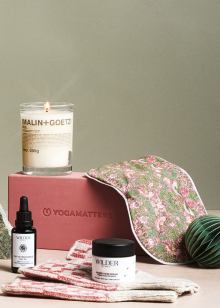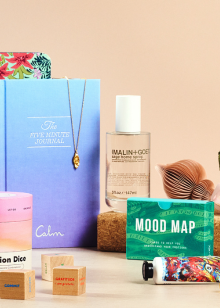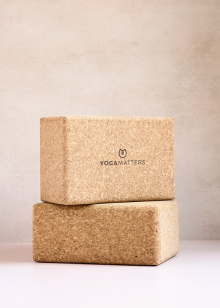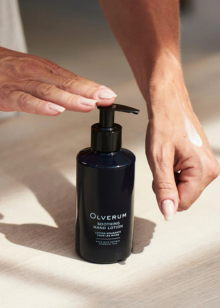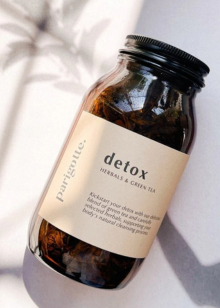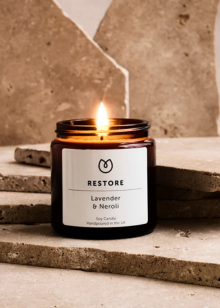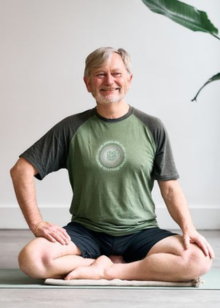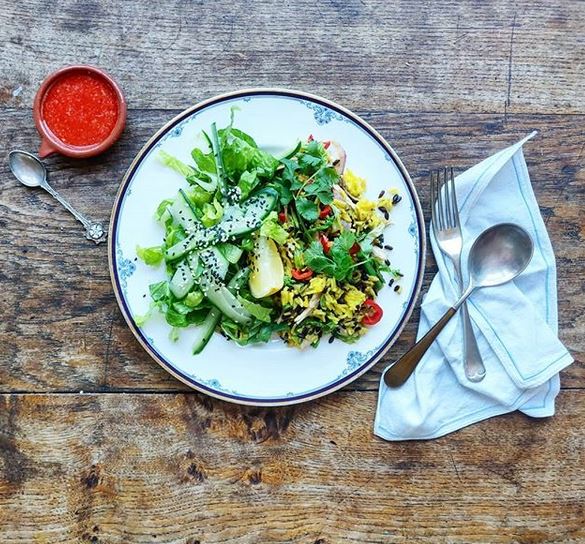Blue Monday is a name coined referring to ‘the saddest day of the year’, personally I don’t agree as I feel a bit sorry for the 21st of January. Perhaps is has the potential to be a wonderfully happy day but we have given it a definition that prevents it from growing to its full potential.
Aaaanyway….the purpose of this blog isn’t really for me to waffle on about existential concepts and the conflicts of defining and pigeon holing, it is to look at the increasing reports of low mood and how we as individuals can address them with tools and a kind acknowledgement which may enable us to care for our own mental and emotional health. Reports of depression, anxiety and other instances of mental ill health are on the rise whether it be due to the topic being less taboo than it once was and so we are more outspoken about our experiences, or that life indeed is becoming far more complex than the average human is designed to manage effectively.
In someway mental ill health has affected or touched us all, a neighbour, a loved one, ourselves, in some cases this emotional response is transient and in others a more permanent feature in life. A mourning for the loss of the self, associated with change in life events, relationships and perhaps a death can all be a trigger for transient or lasting low moods.
A personal experience
Post-operative depression is far more common than we care to admit for example, I can speak from my own experience. For those highly active suddenly being hindered can be a massive blow to mental health and result in a very real struggle that may or may not be resolved. The identity of the self suddenly changes as the body becomes something very different, for me it was the 40% loss of use of my left hand, it started off at complete loss and slowly recovered but continued surgeries had my yoyoing between functionality and complete one handed existence. I cried when I couldn’t put my clothes on, brush my hair, drive a car, practice yoga and so on. I thought these were tears of frustration and anger alone but on reflection these were tears of loss. Thankfully I have almost recovered and although there are still problems I have come to direct a more kind attitude to my hand and its struggles to keep up with my demands and love it for its wonky shape and mad character of dropping things without notice.
The journey was long and I used my knowledge and awareness to manage my health and encourage a healing process. I digress, looking at how we can easily feel unbalanced and vulnerable what are the skills and what knowledge can we use to help us get through times that are mental and emotionally challenging?
A little science background
There is a great deal of evidence supporting the link between sufficient exercise and alleviation of depression (Dunn et al., 2005), mindful practices such as yoga and meditation and reduction in anxiety (Hofmann et al., 2015) (Maxwell and Duff, 2016), and appropriate nutrition and balanced mental health (Bodnar and Wisner, 2005).
In the 1970s ground breaking studies demonstrated amino acid uptake competition, it specifically highlighted that tryptophan was poorly up taken in comparison to tyrosine and valine (Choi et al., 2009). Tryptophan is a precursor to serotonin, a neurotransmitter associated with good mood. Reduced tryptophan uptake in the rate model resulted in reduction in serotonin in the brain and altered behaviour leading the authors to explore this finding. This lead to the discovery that tryptophan has better uptake when consumed with a moderate amount of carbohydrate, later it was discovered that insulin which is triggered by the presence of sugars in the blood also enables amino acid transport across cell membranes. So if insulin, triggered by carbohydrates helps tryptophan across membranes in order to help with serotonin production (Fernstrom and Hirsch, 1975) we can conclude that having tryptophan rich foods with a small to moderate amount of complex carbohydrate can help us to produce serotonin and balance our moods.
I looked at a study that analysed the effects of three groups of people following natural disaster trauma and the effects on mental health parameters, although there did not seem to be a control group, I suspect for ethical reasons, what I did find interesting is the B Complex and the Multi-nutrient/vitamin groups improved in both anxiety and depression as well and cognitive function however the vitamin D group improved moderately in all except anxiety where it did not perform as well. (Kaplan et al., 2015). This points to the importance of having a number of different nutrients acting together to reduce mental ill health symptoms and that vitamin D should not be the go to supplement if Anxiety is the main health concern.
A study focusing on zinc, magnesium and folate also supported the theory that micronutrient dense foods help to alleviate depressive symptoms but like vitamin D, surprisingly did not have a significant effect on anxiety. Similarly lower levels of circulation Omega 3s are associated with patients experiencing a depressive episode but no correlation is found with depression. (Thesing et al., 2018)
Nutrients that do assist with anxiety reduction are Vitamin C, E (Hughes, Lowther and van Nobelen, 2011) and dietary B complex from Yeast spreads fortified with B12 (Mikkelsen et al., 2018).
What does this all mean?
Looking after our own mental health is a responsibility we must all take on, understanding what may be affecting us and how we are manifesting it is the first step. If low moods and depressive symptoms are of a concern, then paying attention to ensuring we have a comprehensive multi-nutrient status with special attention to Omega 3’s, Zinc, Magnesium, Vitamin Bs and D is a good move. You can look at whfoods to learn more about dietary sources of different nutrients.
Having a diet diverse in vegetables and fruits as well as ensuring sufficient Omega 3’s, D and Bs will help to support the body and mind. Vegan sources of Omega 3s are now available as well as D3 made from a particular fungus/mushroom. When eating tryptophan rich foods such as almonds it is worth have a slice of apple or pear at the same time to help with absorption, almond butter on apple slices is a lovely snack that is sure to support neurotransmitter production.
And what shall I eat today?
Perhaps a little information overload but don’t worry, here is a super simple and handy recipe to incorporate some of these these supportive nutrients into your body.
Serves 1
8 almonds and 1 tbsp pumpkins seeds, soaked overnight
2 tbsp flaxseeds, soaked overnight
1 banana
2 handfuls of mixed organic berries of your choice
1 tbsp cacao
1 cup coconut water
½ cup water
1 tbsp buckwheat, soaked overnight
Add the seeds and nuts and blend until smooth with the water, then add the rest of the ingredients and further blend for a 30 seconds or so. Enjoy immediately!
………………………………..
References
Bodnar, L. and Wisner, K. (2005). Nutrition and Depression: Implications for Improving Mental Health Among Childbearing-Aged Women. Biological Psychiatry, 58(9), pp.679-685.
Choi, S., DiSilvio, B., Fernstrom, M. and Fernstrom, J. (2009). Meal ingestion, amino acids and brain neurotransmitters: Effects of dietary protein source on serotonin and catecholamine synthesis rates. Physiology & Behavior, 98(1-2), pp.156-162.
de Medeiros Barbosa, I., da Costa Medeiros, J., de Oliveira, K., Gomes-Neto, N., Tavares, J., Magnani, M. and de Souza, E. (2016). Efficacy of the combined application of oregano and rosemary essential oils for the control of Escherichia coli, Listeria monocytogenes and Salmonella Enteritidis in leafy vegetables. Food Control, 59, pp.468-477.
Dunn, A., Trivedi, M., Kampert, J., Clark, C. and Chambliss, H. (2005). Exercise treatment for depression. American Journal of Preventive Medicine, 28(1), pp.1-8.
Fernstrom, J. and Hirsch, M. (1975). Rapid repletion of brain serotonin in malnourished corn-fed rats following L-tryptophan injection. Life Sciences, 17(3), pp.455-463.
Hofmann, S., Curtiss, J., Khalsa, S., Hoge, E., Rosenfield, D., Bui, E., Keshaviah, A. and Simon, N. (2015). Yoga for generalized anxiety disorder: design of a randomized controlled clinical trial. Contemporary Clinical Trials, 44, pp.70-76.
Hughes, R., Lowther, C. and van Nobelen, M. (2011). Prolonged treatment with vitamins C and E separately and together decreases anxiety-related open-field behavior and acoustic startle in hooded rats. Pharmacology Biochemistry and Behavior, 97(3), pp.494-499.
Jacka, F., Maes, M., Pasco, J., Williams, L. and Berk, M. (2012). Nutrient intakes and the common mental disorders in women. Journal of Affective Disorders, 141(1), pp.79-85.
Kaplan, B., Rucklidge, J., Romijn, A. and Dolph, M. (2015). A randomised trial of nutrient supplements to minimise psychological stress after a natural disaster. Psychiatry Research, 228(3), pp.373-379.
Maxwell, L. and Duff, E. (2016). Mindfulness: An Effective Prescription for Depression and Anxiety. The Journal for Nurse Practitioners, 12(6), pp.403-409.
Mikkelsen, K., Hallam, K., Stojanovska, L. and Apostolopoulos, V. (2018). Yeast based spreads improve anxiety and stress. Journal of Functional Foods, 40, pp.471-476.
Thesing, C., Bot, M., Milaneschi, Y., Giltay, E. and Penninx, B. (2018). Omega-3 and omega-6 fatty acid levels in depressive and anxiety disorders. Psychoneuroendocrinology, 87, pp.53-62.
